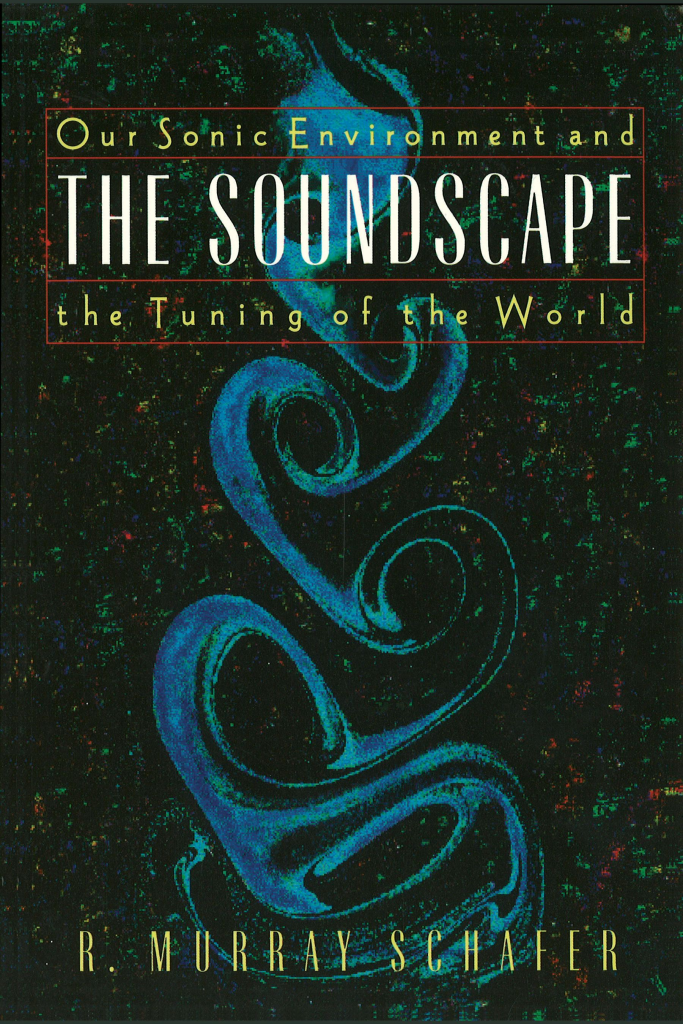
2023-07-18 marks the 90th anniversary of the birth in 1933 of Raymond Murray Schafer, in Sarnia, Ontario. He died 2021-08-14 from complications of Alzheimer’s at his house near Peterborough, Ontario. Since 2010, that date celebrates World Listening Day.
Schafer is especially noted for his World Soundscape Project, developed at Simon Fraser University, in Burnaby, British Columbia, which laid the fundamental ideas and practices of acoustic ecology in the 1970s. He started in the Centre for Communication in the Arts, originally part of the Faculty of Education, at the university when it opened in 1965-09 and remained there until 1975, although the Centre had become part of the Faculty of Arts.
One of the reasons for Schafer developing the field of acoustic ecology was that the university was still a gigantic construction project, producing extreme quantities of noise, in addition to some buildings. At one point, Schafer joined a noise abatement society. In his memoirs, he describes the 1960s as the noisiest decade on record.
Schafer coined the term schizophonia in 1969, defined as the splitting of a sound from its source or the condition caused by this split: “We have split the sound from the maker of the sound. Sounds have been torn from their natural sockets and given an amplified and independent existence. Vocal sound, for instance, is no longer tied to a hole in the head but is free to issue from anywhere in the landscape.”
World Listening Day was established in 2010 to promote active listening, not only to natural sounds but also to the sounds of cities, communities and personal experiences. Most years, the day has a specific theme tied to it. Reader’s of this weblog, may recall a post about American composer Pauline Oliveros. The 2017 theme was dedicated to her, titled Listening to the Ground: “Sometimes we walk on the ground, sometimes on sidewalks or asphalt, or other surfaces. Can we find ground to walk on and can we listen for the sound or sounds of ground? Are we losing ground? Can we find new ground by listening for it?”
In 2023, instead of a theme, World Listening Day is about engaging with important questions related to listening, ecology, and the future. The questions for 2023 World Listening Day are:
- What can we learn from the listening practices of all living beings?
- How can we deterritorialize listening practices?
- When should we listen more?
Listening is an art that requires attention and patience. The relationship between hearing and listening is complex. Often, hearing is not used effectively. Rather, many sounds are blocked, and people fail to listen to voices, and their messages. On the other hand, many people have hearing impairments that limit their ability to listen.
Two important works written by Schafer are: 1) The Soundscape: Our Sonic Environment and the Tuning of the World (1994) Here, Schafer contends that people suffer from an overabundance of acoustic information. He explores ways to restore the ability to hear nuances of sounds. This book examines the acoustic environment, past and present, and attempts to imagine what it might become; 2) My Life on Earth and Elsewhere (2012) This book traces the author’s life from his earliest memories to the book’s publication. These include scenes from his youth as an aspiring painter, a music student, and a sailor on a Great Lakes freighter. Later, he remembers several years of work and wandering in Europe, where he gained a deeper understanding of sound, and found, especially in Greece, the inspiration for much of the music he would create after his return to Canada.

